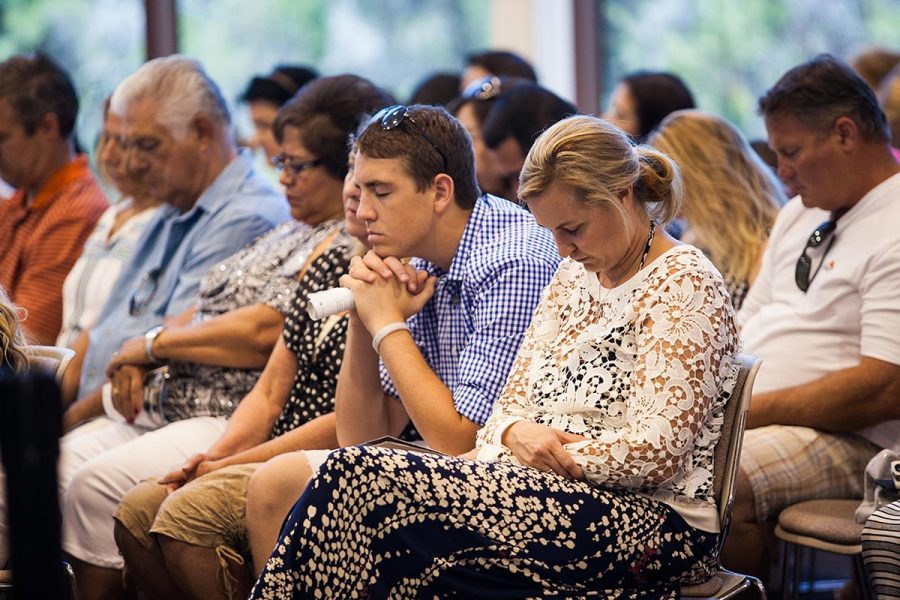Sound doctrine most important to a church
Spencer Camp examines the elements that make up a doctrinally sound church.
October 15, 2014

The Bible makes it abundantly clear that there will be churches that distort the Gospel. They will have pastors that are wolves in sheep’s clothing, bringing destructive heresies, deceiving even the elect, posing as people-pleasers, tickling the ears of those who will not endure sound doctrine but will substitute the teaching of God for myths that will suit their own passions. In the words of C.S. Lewis, they will teach Christianity and water in place of the message of the true Gospel.
How do we discern if a church is a good church? As the 19th century preacher Charles Spurgeon once remarked, “Don’t go where it is all fine music and grand talk and beautiful architecture; those things will neither fill anybody’s stomach, nor feed his soul. Go where the gospel is preached, the gospel that really feeds your soul, and go often.”
A good church will teach sound doctrine. Or in the words of Paul the apostle, they will teach the whole counsel of God. Not half the counsel, not three-fourths of the counsel, not nine-tenths of the counsel, but the entire and complete counsel of God.
It is essential to stress this all-important point — a good church teaches the whole Gospel, the bad news and the good news, heaven and hell, the cost of discipleship and the blessings of obedience, salvation not by good works but for good works, repentance and faith, the sinfulness of sin and the blessedness of holiness. Teaching what you like out of the Gospel equates to teaching half the Gospel and is on the same level as teaching a false Gospel. In the words of St. Augustine, “If you believe what you like in the gospels, and reject what you don't like, it is not the gospel you believe, but yourself.” While believing in yourself may get you into Disneyland, it will not get you into heaven.
A good church avoids teaching two of the ugliest doctrinal errors out there: legalism and antinomianism.
We hear a lot about legalism at Biola, but what does the word really mean? Legalism states that salvation equals Jesus’ perfect life and something else as our means of justification before God. It can be the addition of good works, it can be the addition of sacraments, or of circumcision — like in the Galatian church. Anything in addition to the perfect blood of Jesus Christ for salvation is, according to Galatians, fallen away from grace and is another false Gospel.
The other error, antinomianism, we do not hear much about at Biola. Antinomianism is a fake salvation that does not lead to transformation. Instead it presents faith without repentance, claiming the benefits of the Christian faith without undergoing any of the costs of discipleship. It uses grace as a license to sin and the forgiveness of God as an excuse for ungodliness. In other words it claims Jesus as savior without making Jesus Lord, which results in a false gospel that will not save.
A good church will teach both the good news and the bad news. We must hear the problem of sin before we can hear the solution of salvation, the diagnosis before the cure.
A good church will teach both repentance and faith. Paul the apostle, testified of repentance toward God and of faith in our Lord Jesus Christ.
While there are some churches to watch out for, there are several good churches near Biola that are well worth attending. Seriously. While none of them are perfect, we know that the local church exists not so that it can serve us but so that we can serve it. As my pastor used to phrase it, “Ask not what your church can do for you, rather ask what you can do for your church.”
So go find one. Wesley describes the church that you should attend as one that preaches sound doctrine and the whole counsel of God. If it does that, then serve it as you would serve the Lord.







